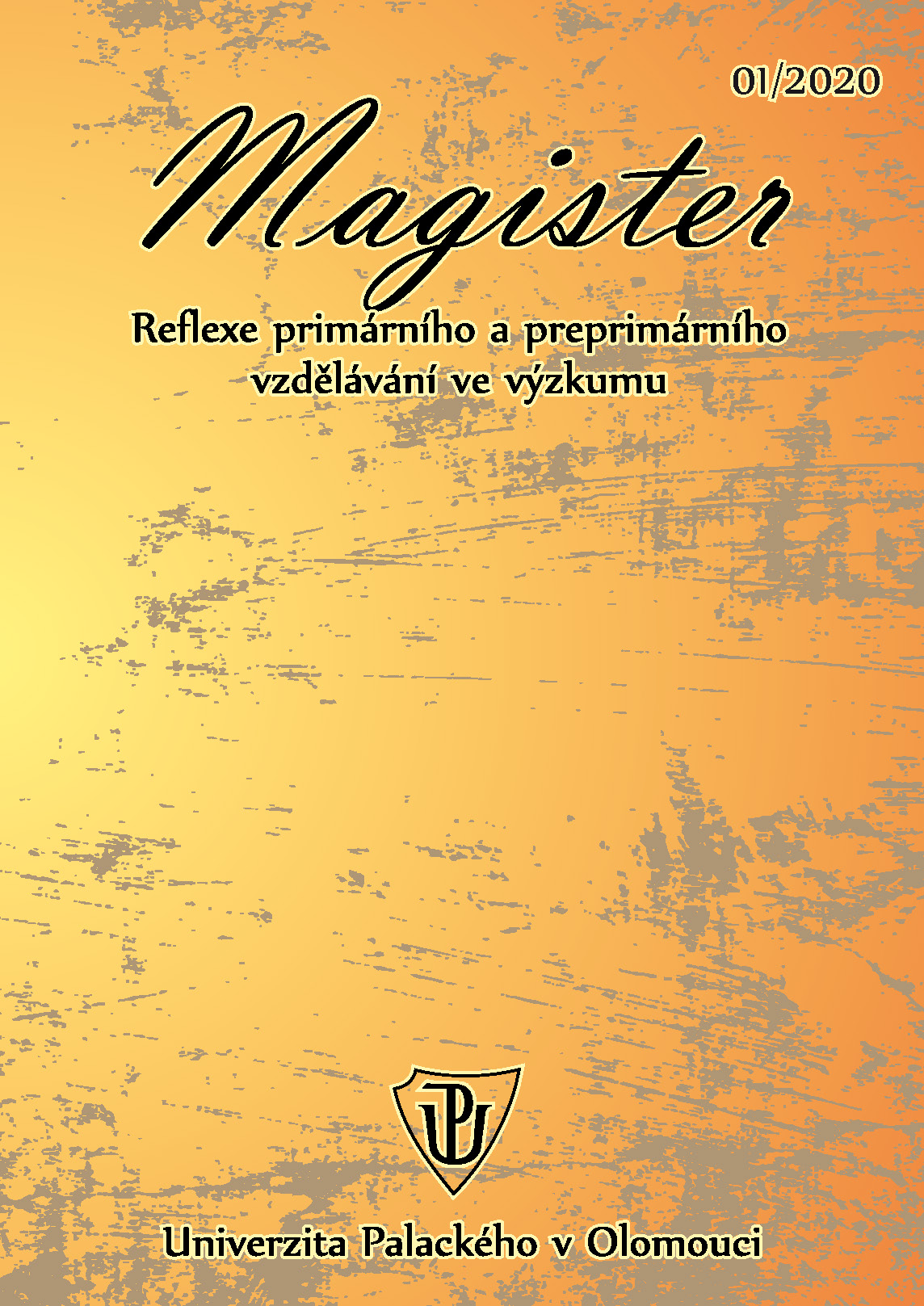Cognitive and informative level of knowledge about puberty among primary school pupils in Croatia
DOI:
https://doi.org/10.5507/magister.2020.132Keywords:
Prepuberty, Puberty, Pupils, Konwledge, Testing, ResultsAbstract
Children need to be adequately prepared for puberty, for all the changes, relationships and contexts. Children should acquire the necessary knowledge before its onset, when they are primary school pupils. Knowledge is the sum of the acquired knowledge gained in the learning process and expresses the pupils' awareness. The cognitive level of knowledge represents the level of instruction and expresses the quantity and quality of information. Adolescence is a broadly defined life stage that culminates in reproductive capacity and the completion of physical growth. In adolescence, psychological and social changes occur in parallel with biological changes. Puberty is an important element of sex education on a global scale. Our pedagogical research investigated the level of knowledge about the definition and meaning of puberty among primary school pupils in Croatia and in the context of other selected countries (Czech Republic, Sweden, China, Spain). We used a didactic knowledge test to collect data. The content of the 9 test items focused on the concept of puberty; on defining puberty; on the age range of the puberty process; on knowledge of changes in physical features in boys and girls; on knowledge of other changes that occur during puberty and on the importance of puberty in a person's life. The non-parametric Kruskal-Wallis test was used to detect statistically significant differences in pupils' responses across countries. The results pointed to the fact that prepubescents have not built up the right knowledge and do not perceive the relationships and connections with puberty issues comprehensively. Incomplete knowledge proves that prepubescents do not see the importance of puberty in a comprehensive way, but only partially, in the form of different combinations in the biological, psychological or social field.
References
International Planned Parenthood Federation. b. (n.d.) Comprehensive sexuality education. Dostupné z: http://www.ippf.org/our-work/what-we-do/adolescents/education.
RAŠKOVÁ, M. (2008). Připravenost učitele k sexuální výchově v kontextu pedagogické teorie a praxe v české primární škole. Olomouc: VUP.
RAŠKOVÁ, M., PROVÁZKOVÁ STOLINSKÁ, D. (2015). Cognitive and informative level of knowledge about puberty of Czech elementary school students. Bulgaria: SGEM. DOI: https://doi.org/10.5593/SGEMSOCIAL2015/B12/S3.019
RAŠKOVÁ, M. and PROVÁZKOVÁ STOLINSKÁ, D. (2015). Puberty as the concept of pedagogical theory and practice. Vienna: IAC-TLEI.
RAŠKOVÁ, M. and Provázková Stolinská D. (2017). Teacher-Student Communication about Puberty in Elementary School. Ireland International Conference on Education. Dublin: IICE.
RAŠKOVÁ, M. and Provázková Stolinská D. and Vavrdová A. (2015). Educational premises of puberty at primary school. Olomouc: ICLEL.
RAŠKOVÁ, M. and PROVÁZKOVÁ STOLINSKÁ, D. (2018). Knowledge about Puberty among Primary School Children in the Czech Republic. 11th annual International Conference of Education, Research and Innovation, Seville.
RAŠKOVÁ, M. and PROVÁZKOVÁ STOLINSKÁ, D. (2018). Cognitive and informative level of knowledge about puberty among primary school pupils in the Czech Republic, China and Spain. The International conference on Education and Educational Psychology. Athens.
RAŠKOVÁ, M. and PROVÁZKOVÁ STOLINSKÁ, D. (2018). Cognitive and Informative Level of Knowledge about Puberty among Primary School Pupils in the Czech Republic and in China,” Educating for change – The european conference on education. Brighton.
RAŠKOVÁ, M. and OTAVOVÁ, M. (2019). Cognitive and Informative Level of Knowledge about Puberty in Primary School Pupils in Sweden. The European Conference on Education 2019. Official Conference Proceedings. Brighton: The International Academic Forum (IAFOR).
RAŠKOVÁ, M. and VAVRDOVÁ, A. (2019). Comparison of puberty knowledge in primary school pupils in the Czech republic, China, Spain and Sweden. EDULEARN19 Proceedings, Madrid: International Association of Technology, Education and Development (IATED), pp. 2695-2701.
ŠTĚRBOVÁ, D. and RAŠKOVÁ, M. (2014). The Spefifics of Communication in Relation to Sexuality I: Helping Professions in Relation to Sexuality, Including Persons with Intellectual Disabilities. Olomouc: Palacký University.
ŠTĚRBOVÁ, D. and RAŠKOVÁ, M., et al. (2016). Specifika komunikace ve vztahu k sexualitě II. Pomáhající profese ve vztahu k sexualitě včetně osob s mentálním postižením – z empirického výzkumu: Univerzita Palackého. DOI: https://doi.org/10.5507/ftk.16.24449944
ŠTĚRBOVÁ, D. and RAŠKOVÁ, M., et al. (2019). Specifika komunikace ve vztahu k sexualitě III. Pomáhající profese ve vztahu k sexualitě včetně osob s mentálním postižením – připravenost do praxe. Olomouc: Univerzita Palackého.
WHO Regional Office for Europe and BZgA. (2010). Standards for Sexuality Education in Europe. Dostupné z: <http://www.bzga-whocc.de/?uid=20c71afcb419f260c6afd10b684768f5&id=home>.
Downloads
Published
Issue
Section
License

This work is licensed under a Creative Commons Attribution-ShareAlike 4.0 International License.


